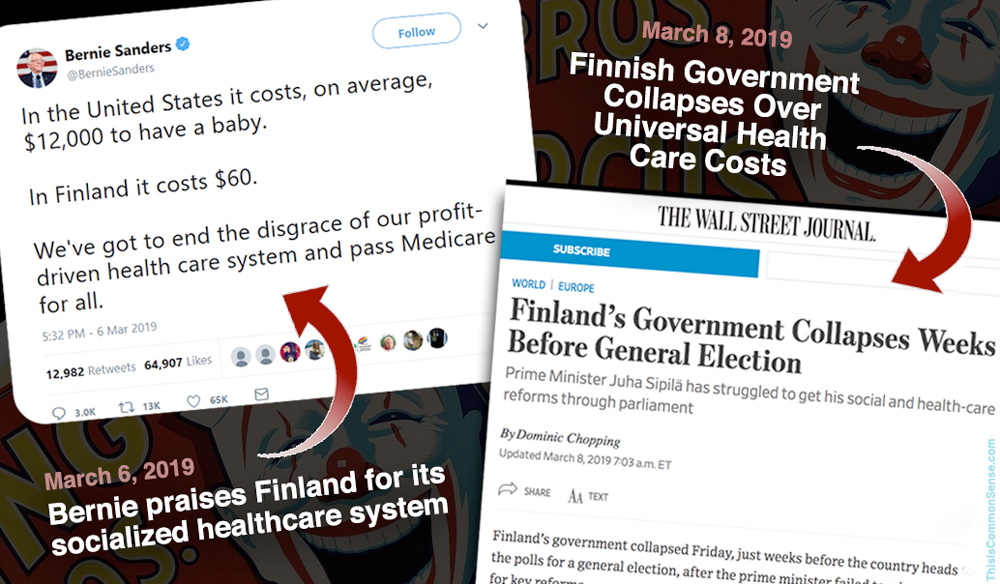“We will do that,” he said.
Do what?
“We will look at the average costs of prescription drugs in Canada, the UK, Germany, Japan and France,” says Sen. Bernie Sanders (I/D‑Vt.), “which are 50 percent lower than they are in the United States,” he told Margaret Brennan on Face the Nation.
And Sanders promises: “if I am elected president I’m going to cut prescription drug costs in this country by 50 percent so that we are not paying any more than other major countries are paying. Maybe we can do better than that.”
When Ms. Brennan asked how, he replied as above — looking at “average costs” as directly priced to consumers (patients) — and then … “we will do that.”
Socialism is so easy!
Why have we waited so long for utopia?
Well, saying is not the same as doing. We must think “beyond Stage One,” as Thomas Sowell advises. For if “Medicare for All” tells a company it will pay only so much for a drug, that company cannot just sell that drug and all others below cost. No wonder that in socialized medicine schemes around the world, not all drugs are even available.
The world prescription drug market is set up … peculiarly. Americans in effect pay more (because of patents and trade agreements) thereby covering development costs. If we pay less, others may have to pay more (which would be an odd thing for a “socialist” to want) and we would all come to get even less.
Bernie is no wizard, and socialism has no magic wand with which to wave away scarcity.
This is Common Sense. I’m Paul Jacob.

—
See all recent commentary
(simplified and organized)










